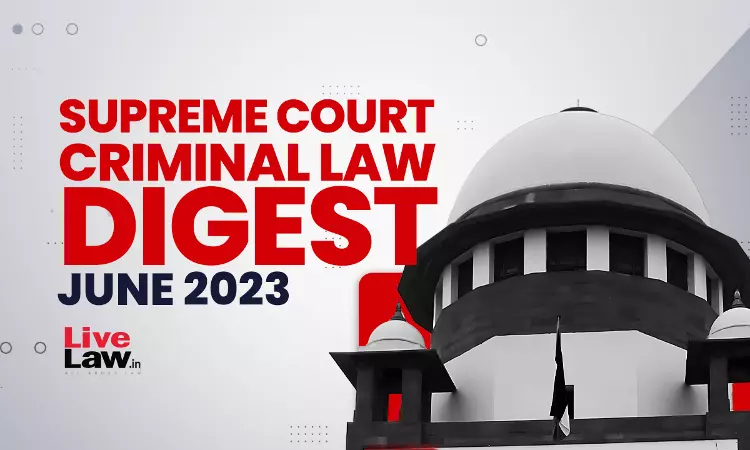- Home
- /
- Supreme court
- /
- Supreme Court Criminal Digest -...
Supreme Court Criminal Digest - June 2023
LIVELAW NEWS NETWORK
30 Sept 2023 2:02 PM IST
Approver need not be examined as witness by magistrate when cognizance is taken by Special Court under PC Act. A. Srinivasulu v. State of Rep. by the Inspector of Police, 2023 LiveLaw (SC) 485Bail - Condition to furnish bank guarantee for granting bail is unsustainable in law. Karandeep Singh v. CBI, 2023 LiveLaw (SC) 482Code of Criminal Procedure, 1973 – Section 197(1) – Discharge...
Next Story



